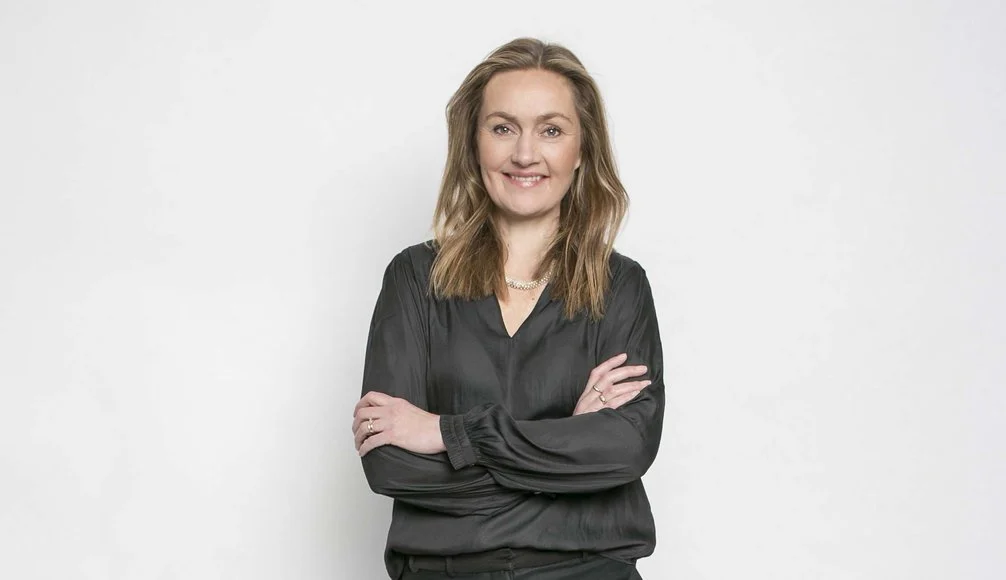
The year 2023 truly marks a turning point in Iceland's innovation history. At the beginning of the year, news came that the pharmaceutical company Oculis, which is based on decades of research at the University of Iceland, has been listed on the Nasdaq stock exchange in New York, the first start-up company from an Icelandic university to be listed on the market.
This summer, even bigger news arrived when the health technology company Kerecis was sold to the Danish medical company Coloplast for 1.3 billion US dollars, thus becoming the first unicorn in Iceland's history. Overnight, this innovative company with roots in Ísafjörður became more valuable than Eimskip and Icelandair combined.
These success stories show in black and white how important innovation is for the Icelandic economy and how much value can be found in Icelandic ingenuity; an ingenuity that Áslaug Arna Sigurbjörnsdóttir, Minister of Innovation, has decided will become Iceland's biggest export in the future.
But in order for innovation to flourish, to increase the chances of more Icelandic spots growing nationally, more Icelandic unicorns being born and Áslaugar Örna's dreams coming true, the supportive environment for innovation in Iceland needs to be strong.
KLAK-Icelandic startups play a key role there. The company has been supporting Icelandic innovation for almost two decades and is getting stronger with each passing year.
KLAK supports 70-80 start-ups per year through numerous accelerators, workshops and events that it organizes with the main goal of promoting the progress of start-ups with all available means.
All these services are free of charge to entrepreneurs and start-ups and are paid for by powerful backers who see a benefit in supporting Icelandic innovation. In 2022, KLAK's sponsors contributed around ISK 160 million in operating capital to enable the company to provide its services free of charge. The startups that benefited from KLAK's services in 2022 have, following their participation in KLAK's accelerators and workshops, collected over a billion ISK from grant funds and professional investors, so the investment in training these startups has returned more than sixfold.
One of KLAK's flagships is the entrepreneurial competition Gulleggið, which the association has held 16 times since 2008. The goal of the competition is to expand the entrepreneurial community in Iceland and increase knowledge about innovation. Many of the country's most promising companies have taken their first steps there, including Controlant, Meniga and Atmonia, which was awarded Samorka's innovation award in 2023. Gulleggið added another decorative feather to its hat this fall when Pay Analytics, which took Gulleggið in 2016, then just an idea early stages, won the 2023 Iceland Innovation Award.
But it's not just money that flows into the Icelandic economy when Icelandic start-ups grow internationally, are sold or listed on the market. The entrepreneurs who build the start-up companies accumulate extensive experience and knowledge that translates directly into the innovation community. That experience and knowledge must be harnessed for the benefit of the next generation of startups.
Over the years, KLAK has been joined by experienced entrepreneurs and experts to guide the startups that participate in projects at KLAK. This KLAK service was further strengthened in 2022 when KLAK signed a partnership agreement with MIT University in the United States, but for the past 20 years the school has systematically used the services of mentors to help entrepreneurs. This year was such an important milestone in the history of KLAK-Icelandic startups when 126 experienced Icelandic entrepreneurs, experts and managers in the country's most powerful companies received training from MIT experts and subsequently joined KLAK's newly established mentoring service. These parties are ready to share their experience and use their relationships to speed up the journey of the shoots. During the year, KLAK's mentoring service has organized three hundred mentoring meetings where two to four mentors join hands, form some kind of advisory board and meet with start-ups up to six times in connection with KLAK's projects. This innovation has worked very well.
The importance of innovation has been known for a long time, but in recent decades the impact of innovation has become even clearer than before when we watch traditional value chains disintegrate, see conservative companies wither and brand new ones seize the opportunities that arise and thus generate immeasurable value. We do not want all such opportunities to be seized by foreign innovative companies. More than ever, we need to promote domestic innovation and help start-ups grow internationally. After the success of the year, it should be clear to everyone that we can do this and that way we can guarantee the key to the nation's living standards for the entire future.
Published in the New Year's edition of Viðipsiblablaðin and on vb.is on December 28, 2023